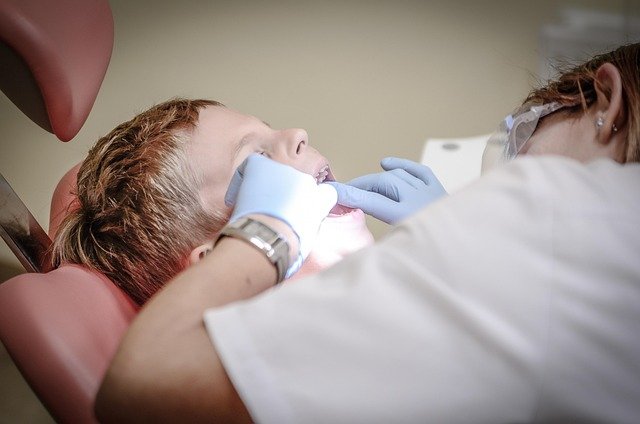Dental Implant Costs in the UK and Turkey: What to Expect
Understanding the financial commitment involved in dental implant procedures is essential for making informed decisions about your oral health. Dental implants offer a long-term solution for missing teeth, but costs can vary significantly depending on location, clinic standards, and treatment complexity. This guide explores what patients can expect when considering dental implant procedures in the UK compared to Turkey, two popular destinations for this transformative dental treatment.

Dental implants have become the gold standard for replacing missing teeth, offering durability, functionality, and a natural appearance. However, the financial aspect of this treatment remains a primary concern for many patients. Whether you’re exploring options locally or considering treatment abroad, understanding the cost landscape helps you plan effectively and choose the right provider for your needs.
What Influences Dental Implant Pricing?
Several factors determine the overall expense of dental implant procedures. The type of implant system used, the expertise of the dental surgeon, clinic location, and any additional treatments required all contribute to the final price. Patients needing bone grafts, sinus lifts, or multiple implants will face higher costs than those requiring a single straightforward placement. Material quality, brand reputation of implant systems, and the level of aftercare provided also affect pricing structures across different regions.
Understanding Dental Implant Costs in the UK
In the UK, dental implant procedures typically represent a significant investment. Single tooth implants generally range from £1,500 to £3,000, though prices can exceed £4,000 at premium clinics in major cities like London. Full arch restorations using implant-supported dentures can cost between £15,000 and £30,000 depending on the technique and materials used. These prices reflect the high standards of clinical care, stringent regulatory requirements, and overhead costs associated with operating dental practices in the UK. Many clinics offer payment plans to help patients manage these expenses over time.
Exploring Dental Implant Costs in Turkey
Turkey has emerged as a popular destination for dental tourism, primarily due to significantly lower treatment costs. Single dental implants in Turkey typically range from £400 to £800, while full arch restorations may cost between £3,000 and £8,000. These reduced prices stem from lower operational costs, favorable exchange rates, and high competition among dental clinics catering to international patients. Many Turkish dental facilities invest in modern equipment and employ experienced practitioners, though standards can vary considerably between clinics. Patients should thoroughly research credentials and reviews before committing to treatment abroad.
Comparing Providers and Cost Estimates
When evaluating dental implant options, comparing different providers helps identify the best value for your specific needs. Below is a comparison of typical cost structures between UK and Turkish dental providers:
| Treatment Type | UK Cost Estimation | Turkey Cost Estimation |
|---|---|---|
| Single Tooth Implant | £1,500 - £3,000 | £400 - £800 |
| Multiple Implants (3-4 teeth) | £4,500 - £10,000 | £1,200 - £2,500 |
| Full Arch Restoration | £15,000 - £30,000 | £3,000 - £8,000 |
| Bone Graft (additional) | £500 - £1,500 | £150 - £400 |
| Consultation and Imaging | £50 - £200 | Often included |
Prices, rates, or cost estimates mentioned in this article are based on the latest available information but may change over time. Independent research is advised before making financial decisions.
What to Consider Beyond Price
While cost differences between the UK and Turkey are substantial, price should not be the sole deciding factor. Treatment in the UK offers easier access to follow-up care, legal protections under UK healthcare regulations, and continuity of care with the same practitioner. Conversely, traveling to Turkey requires factoring in flights, accommodation, time off work, and potential complications that might necessitate additional visits. Language barriers, different clinical protocols, and varying quality standards present additional considerations. Patients should evaluate their priorities, risk tolerance, and long-term care needs when making this decision.
Finding Quality Providers Locally
For those preferring treatment closer to home, researching local dental practices with implant expertise is essential. Look for clinics with certified implantologists, modern diagnostic equipment, and transparent pricing structures. Many UK dental practices offer free initial consultations where treatment plans and costs are discussed in detail. Checking professional registrations with the General Dental Council, reading patient testimonials, and asking about success rates and warranties can help identify reputable providers in your area. Some practices also offer interest-free finance options to make treatment more accessible.
Making an Informed Decision
Choosing where to have dental implant treatment requires careful consideration of multiple factors beyond immediate cost savings. Quality of care, convenience, aftercare accessibility, and overall value should all influence your decision. Whether opting for treatment in the UK or exploring options in Turkey, ensure you fully understand what is included in quoted prices, ask about guarantees, and verify the qualifications of treating clinicians. Requesting detailed treatment plans and seeking second opinions can provide additional confidence in your choice. Remember that dental implants are a long-term investment in your oral health, and selecting the right provider is crucial for achieving successful, lasting results.
Ultimately, the decision between domestic and international dental implant treatment depends on individual circumstances, budget constraints, and personal preferences. By thoroughly researching options, understanding cost structures, and prioritizing quality alongside affordability, patients can make choices that best serve their dental health needs and financial situations.




